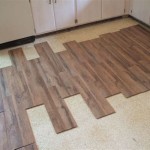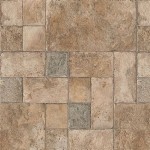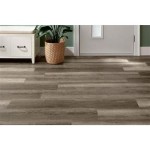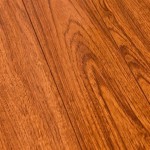**Unveiling the Art of Tile Flooring Design: Essential Tips to Elevate Your Space**
Embarking on a tile flooring project is an exciting endeavor that can transform the aesthetics and functionality of your home. From classic designs to contemporary patterns, the versatility of tile flooring offers endless possibilities. To guide you through the intricacies of design, here are some essential tips to help you create a stunning and cohesive look for your space:
1. Determine Your Style and Purpose: Before venturing into design choices, consider the overall style of your home and the intended use of the tiled area. If aiming for a timeless and elegant ambiance, traditional materials like marble or travertine tiles exude sophistication. For a more modern touch, opt for geometric patterns or metallic accents. Additionally, consider the traffic and moisture conditions of the space to select appropriate tiles that are durable and easy to maintain.
2. Explore Size and Shape: Tile size and shape significantly impact the visual impact of your flooring. Larger tiles create a spacious and modern feel, while smaller tiles lend a more classic and intricate look. Consider the size of the room and the desired ambiance when making your selection. Experiment with different tile shapes such as hexagons, herringbone, or penny rounds to add visual interest and texture.
3. Choose a Harmonizing Color Palette: Tiles come in a vast array of colors, so selecting a palette that complements your decor is crucial. Start by identifying the dominant colors in your room and choose tiles that either match or contrast subtly. Neutral shades like beige, gray, or white can serve as a versatile base, allowing you to incorporate accents with vibrant colors or patterns.
4. Create Focal Points: Incorporating focal points into your tile flooring design can add depth and visual interest. Use decorative tiles with intricate designs or a contrasting color to create a stunning centerpiece in a specific area, such as a fireplace hearth or kitchen backsplash. Alternatively, consider using a different tile pattern or size to delineate different zones within a larger space.
5. Experiment with Textures and Finishes: Tiles are not limited to smooth and glossy surfaces. Explore textured tiles to add an extra dimension to your flooring. Stone tiles, for instance, offer natural variations and tactile appeal. Matte or antiqued finishes can create a rustic or vintage aesthetic, while polished tiles exude a sleek and modern look.
6. Pay Attention to Grout: Grout is an essential element of tile flooring design, as it fills the spaces between the tiles and complements their appearance. Choose a grout color that either blends seamlessly with the tiles or creates a contrasting effect to highlight the tile patterns. Experiment with different grout finishes, such as sanded, unsanded, or epoxy, to achieve the desired look and durability.
7. Consider Sustainable Options: When selecting tiles, don't overlook their environmental impact. Opt for tiles made from sustainable materials like porcelain, ceramic, or recycled glass. These options are not only durable but also contribute to eco-friendly practices. Additionally, choose tiles with low VOC (volatile organic compounds) emissions to promote indoor air quality.

25 Modern Floor Tile Designs The Best Patterns For Every Room

Tile Design Ideas Inspiration Flooring Bathroom

Solution Center Tips Advice And Ideas Floor Tile Design Foyer

Living Room Tile Flooring Ideas Design Shape

These Diagrams Are Everything You Need To Decorate Your Home Floor Tile Design Layout Interior Tips

26 Entryway Tile Ideas Stylish Designs For Hallways

7 Tips To Select The Best Tiles For Living Room

60 Floor Tiles Design Ideas For Living Room Bedroom Outdoors Select Patterns

Kitchen Tiles Floor Design The Top For A Modern House

Contractor Tips For Perfect Porcelain Tile Installation
Related Posts








